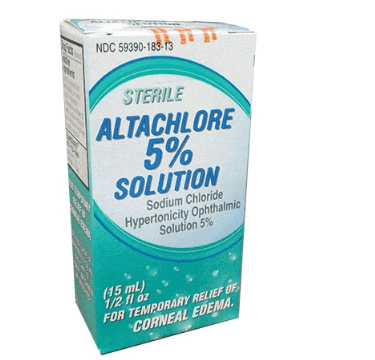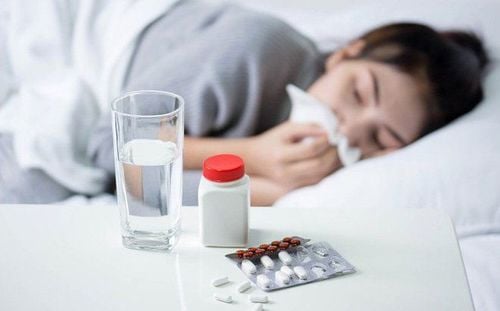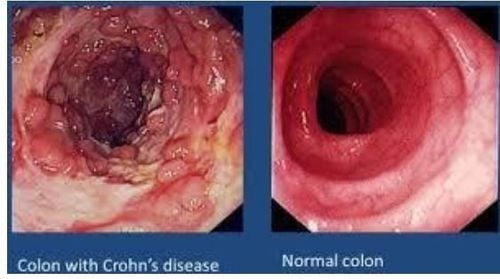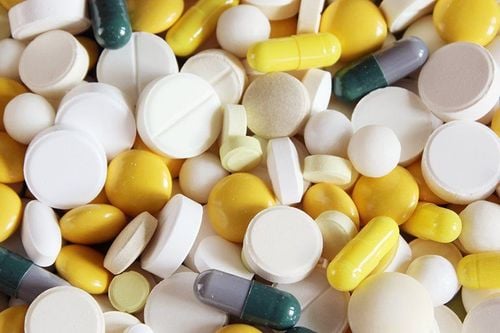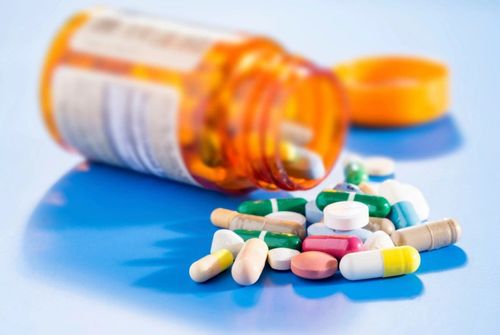This is an automatically translated article.
Rivka drug belongs to the group of anti-parasitic, anti-infective, anti-viral, anti-fungal drugs that work to treat infections caused by sensitive bacteria. Let's learn about the uses and notes when using Rivka through the article below.
1. What is Rivka?
Rivka medicine contains the main active ingredient Ceftibuten in the form of Ceftibuten dihydrate and excipients just enough for 1 tablet. The drug is prepared for users in the form of hard capsules and is packaged in boxes of 1 blister, 3 blisters, 10 blisters x 10 tablets with 2 types in different dosages including Rivka 200 and Rivka 400.
2. Uses of Rivka
Rivka is indicated for use in the treatment of infections caused by susceptible bacteria, including:
Symptoms of respiratory tract infections such as: chronic bronchitis, acute maxillary sinusitis, Acute bronchitis, pneumonia. Acute otitis media . Pharyngitis, tonsillitis. Urinary tract infections. Note: Do not use for patients who are allergic or sensitive to cephalosporin antibiotics or any of the ingredients in the drug.
Pharmacodynamic properties:
Like most beta-lactam antibiotics, inhibition of bacterial cell wall synthesis produces the bactericidal action of ceftibuten. Due to the properties of its chemical structure, Ceftibuten is relatively stable to beta-lactamases. Many β-lactamase producing bacteria that are resistant to penicillins or cephalosporins can be inhibited by ceftibuten. Ceftibuten-trans is formed by isomerization of ceftibuten (cis form) with only 1⁄4 - 1⁄8 ceftibuten activity.
3. Dosage and how to use Rivka
The drug is made in the form of hard capsules, so it should be taken orally. Dosage of Rivka is recommended as follows:
Adults and children over 12 years old: 400mg x 1 time/day, continuously for 10 days. Children 6 months to 12 years old: dose 9mg/kg x 1 time/day for 10 days. Use a maximum dose of 400mg/day. Patients with renal impairment: Creatinine clearance 30-49ml/min, oral dose of 4.5mg/kg or 200mg daily. Patients with renal impairment: Creatinine clearance 5-29ml/min, oral dose of 2.25mg/kg or 100mg daily. Patients on hemodialysis may receive a dose of 9 mg/kg or 400 mg/day at the end of each dialysis session. Management of missed dose: If you miss a dose, you can take it 1 to 2 hours later than indicated in the prescription. However, when the time is too far from the time when you need to take the medicine, you should not make up for it or arbitrarily double the dose, but proceed to take the next dose as indicated. Users need to strictly follow the prescription or consult the doctor before deciding to change the dose.
Treatment of overdose: After taking the drug, users see strange symptoms, need to stop using the drug and go to the nearest medical center to be diagnosed and supported by a specialist doctor. disease status.
4. Rivka side effects
Besides the main effects of the drug, when using Rivka, users may experience some unwanted side effects as follows:
Common symptoms: nausea, vomiting, erythema Rare symptoms : Erythema multiforme, pseudomembranous colitis, jaundice, leukopenia, thrombocytopenia, Stevens-Johnson syndrome. Ceftibuten is generally well tolerated, so side effects are usually mild and transient. However, if the symptoms mentioned above or any unusual symptoms appear while taking the drug, it is necessary to consult a qualified doctor or pharmacist for advice on safe use of the drug.
5. Rivka drug interactions
During the use of the drug, it is possible that the interaction between Rivka drug with food or other drugs and functional foods affects the absorption capacity and metabolic rate of the drug as follows:
No significant effects occurred with high doses of aluminum hydroxide/magne hydroxide antacids, ranitidine, and a single intravenous dose of theophylline. The efficacy of ceftibuten capsules is not affected when taken with food. Note: Patients should fully list the functional foods and drugs they are taking so that doctors and pharmacists can give accurate advice and avoid interactions with harmful drugs that happen to users.
6. Some notes when using Rivka
Some notes for users when using Rivka:
Patients who are allergic to penicillin should be careful when using the drug. Patients on long-term broad-spectrum antibiotics may overgrow non-susceptible strains. Care should be taken and be sure to be monitored by a qualified physician when taking the drug. Patients with renal impairment should reduce the dose of the drug when taking. The safety and efficacy of the drug in children under 6 months of age have not been established. Use drugs for subjects when really needed and carefully monitor after use. Women who are pregnant or breast-feeding should not take the drug. Drivers and operating machinery should be careful of side effects after taking the drug. The basic information about Rivka in the above article is for reference only. Users should not arbitrarily use the drug but need to use it according to the prescription of the doctor to ensure safety for health.
Follow Vinmec International General Hospital website to get more health, nutrition and beauty information to protect the health of yourself and your loved ones in your family.
Please dial HOTLINE for more information or register for an appointment HERE. Download MyVinmec app to make appointments faster and to manage your bookings easily.




